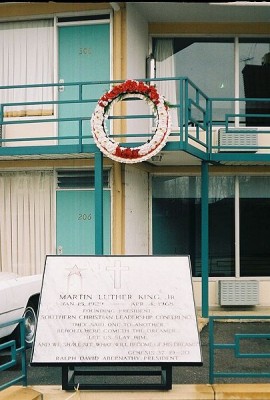The city of Memphis, Tenn. and the suburban county that encompasses it are locked in a battle over whether to consolidate their schools into one large system. The city board, which proposed the merger, says the move is in reaction to a county proposal to transform itself into a “special district,” which would keep it from having to give some of its tax revenues to the city schools, as it does now. For Memphis, where the students are majority low-income and the tax base reflects this, the special district scenario could prove disastrous.
The fight is a flashback to the 1970s, when school districts across the country faced busing plans intended to undo decades of racial segregation. As the New York Times notes, Tennessee back then had to pass a law to keep suburban school districts from transforming themselves into special districts in an effort to avoid desegregation.
Louisville, Ky. is one of the bigger examples of this sort of merger from that era. The consolidation of the county and city there caused a decade-long conflict that still simmers. A large part of the conflict was busing: The merger came with a court order that the nearly all-white county schools had to send their students into the nearly all-black city schools, and vice versa. Many administrators and teachers lost their jobs, the power that black officials had held in the city system was diluted, and several formerly black schools were shuttered.
Although researchers, Louisville leaders, and the city’s school board have argued that, in the end, the merger and desegregation were a success — a qualified one, I would argue, as the city still has an achievement gap between white and black students, although the gap in Kentucky is much smaller than other states — and though it eventually was well-received by the public, the conflict reemerged with the Supreme Court case in 2007 that ended race-based school assignments.
Busing isn’t an issue in Memphis this spring, where voters will decide on the merger idea in March. But many of the deeper issues that fueled the battles of desegregation are still there, even if busing is off the table. How much do the suburbs and their more well-to-do residents owe to the central cities that anchor them and the more disadvantaged residents who live there? Can inner-city school systems be resurrected on their own, or does the concentration of poverty make that an impossible task?
One interesting piece of the Memphis story is that black leaders — including the head of Martin Luther King Jr.’s Southern Christian Leadership Conference, Rev. Dwight Montgomery — are not supporting the merger plan. “If the school systems are unified in a divided community, how does that help the children?” Montgomery has asked.
Right now, Memphis is undergoing a major overhaul of its schools thanks in part to the Race to the Top competition, which Tennessee won in the first round last year. The city has rolled out a major teacher effectiveness initiative, and a spokesperson pointed out to me the other day that the high school graduation rate there has increased in recent years. Can these efforts — which are at the cutting-edge of school reforms going on across the country to lift high-poverty, high-minority schools out of failure — close the achievement gap between those suburban white kids in Shelby County and those inner-city black kids in Memphis?
Many assume that the story of desegregation is long over — that the 2007 Supreme Court decision is an epilogue in a narrative about police dogs and black children and national guard members and Martin Luther King Jr. that elementary school children study during Black History Month. But the Memphis battle is a reminder that these issues still haunt us, and continue to defy any easy solution.




